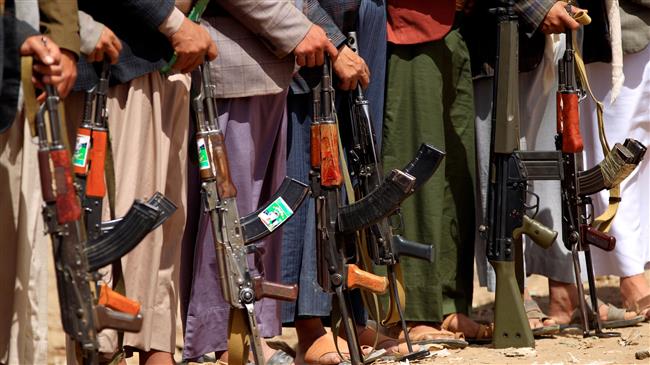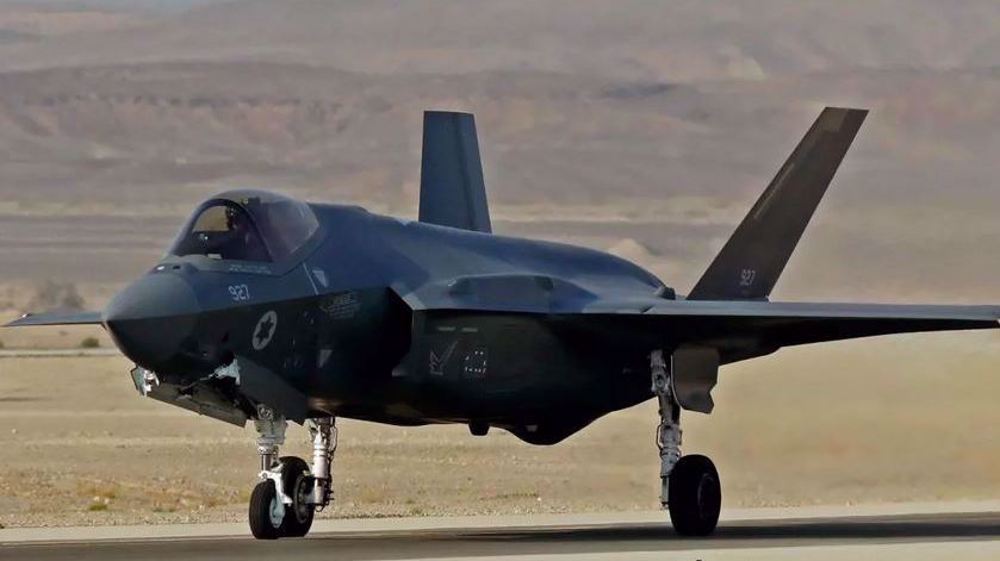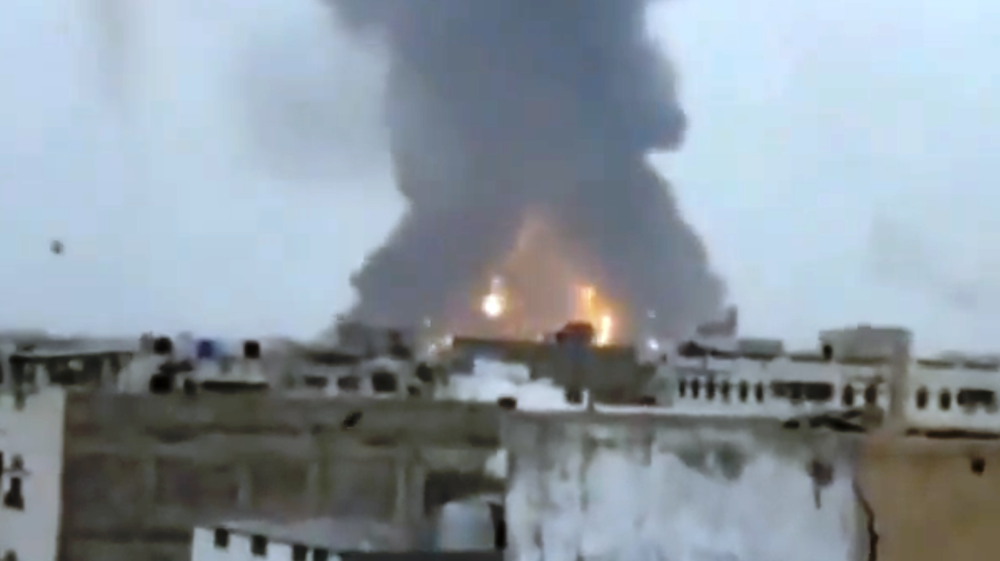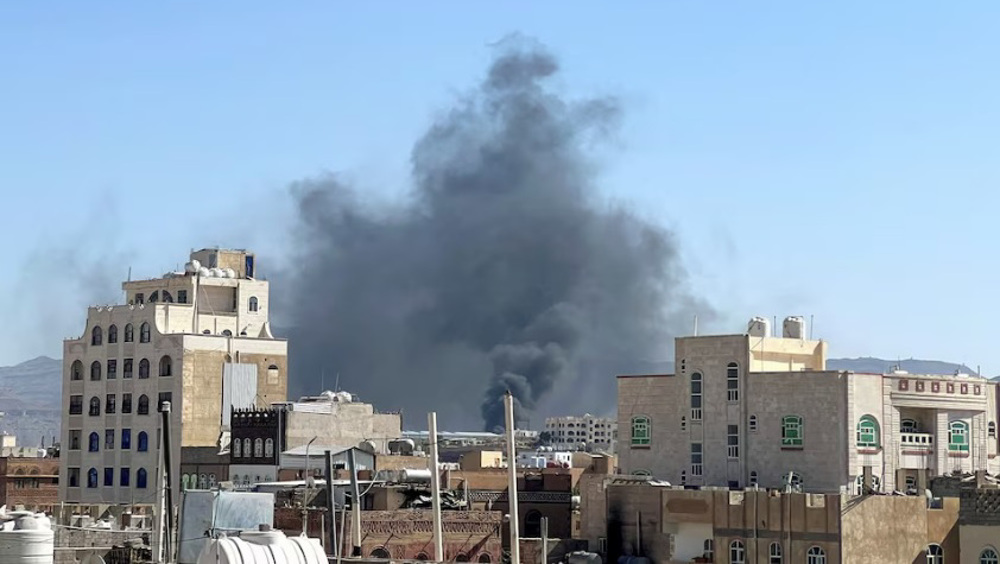UK’s secret war: British commandos wounded in Yemen
A number of elite British commandos have sustained injuries in direct gunfights with Yemeni forces as part of what appears to be a secretive UK military campaign in Yemen, a new report says, adding a major twist to London’s involvement in Saudi Arabia’s deadly war against its impoverished southern neighbor.
The Mail on Sunday said it can reveal that at least five members of the UK’s Special Boat Service (SBS) troops had suffered gunshot injuries in fierce clashes with members of the Houthi Ansarullah movement, who have been repelling the Saudi-led military invasion since March 2015.
The SBS personnel received treatment for leg and arm wounds in Yemen’s northern Sa’ada province, where the report said around 30 elite British forces had been based.
The injured soldiers had been taken back to the UK to recover, the report added.
“The guys are fighting in inhospitable desert and mountainous terrain against highly committed and well-equipped Houthi rebels. The SBS’s role is mainly training and mentoring but on occasions they have found themselves in firefights and some British troops have been shot,” an SBS source told the Mail.
“In a contact a few weeks ago, a SBS guy was shot in the hand and another guy was shot in the leg. Their injuries were a reminder that this is a very dangerous assignment. Obviously nothing about the mission will be confirmed publicly by the Ministry of Defense unless a UK soldier is killed – they’d have to announce that.”
The SBS teams deployed to Yemen include medics, translators and Forward Air Controllers (FACs), who are tasked with directing Saudi air support.
The SBS, a 200-strong force based at Poole in the British town of Dorset, is a maritime Special Forces unit that mainly recruits the Royal Marines. The force has been known for its operations in Iraq, Afghanistan and most recently in Syria.
The revelation that British forces are fighting in Yemen came after Armed Forces Minister Mark Lancaster admitted that London had long been servicing UK-made fighter jets Saudi Arabia was using to indiscriminately bomb Yemeni people.
Read More:
Lancaster told the parliament last Monday that Britain’s Royal Air Force (RAF) was providing “engineering support” and “generic training” to Saudi Arabian military.
'UK engineers nearly died in Yemeni drone attack'
According to the new report, British engineers stationed at the King Khalid Air Base in the southwestern parts of the kingdom narrowly escaped a Yemeni drone attack.
The attack, carried out by a “suicide drone” that exploded on the runway, destroyed at least two of the Royal Saudi Air Force (RSAF)’s UK-made Tornado fighter jets which were kept at the base for maintenance purposes.
The new report is expected to spark angry criticism from British politicians and activist groups that have long criticized London’s support for Saudis over the course of what has been referred to by the UN as the world’s biggest humanitarian crisis.
Andrew Mitchell, a British Member of Parliament the former secretary of state for international development, said the UK was “shamefully complicit” in Saudi Arabia’s atrocities in Yemen.
He also urged the government of Prime Minister Theresa May to brief Parliament about the role of the British troops in the conflict.
This puts British soldiers on the same side as Saudi-funded Yemeni militias and foreign soldiers who have been recruited by Riyadh to fight the war on behalf of the Saudi military.
A former British serviceman who had returned from Yemen earlier this year said the Saudi-led coalition – which includes repressive regional regimes like Bahrain and the United Arab Emirates - was paying money to recruit children as young as 13 as mercenaries.
“The tribal leaders accept payments from the Saudis and the UAE in return for youths aged 13 and 14 to bolster the front line. They are poorly armed and have no body armor,” he said.
He said Riyadh was hiring mercenaries because Saudi soldiers didn’t want to leave their air-conditioned shelters.
“They (the Saudi forces) don’t want to be in Yemen at all,” the former serviceman told the Mail.
Saudi Arabia began its deadly aggression against Yemen with a declared goal of destroying the Houthis and reinstating fugitive former president Abd Rabbuh Mansur Hadi, a staunch Riyadh ally.
The UK, along with the US, seized on the opportunity and signed major arms deals with the oil-rich kingdom, while also providing it with target intelligence and personnel training throughout the conflict.
The UK has licensed over £4.7 billion worth of arms exports, including missiles and fighter jets, to Riyadh since the deadly conflict began in 2015. May has so far faced down calls for a ban on the weapons sales despite the growing humanitarian disaster.
To this day, despite international outrage, the UK continues to sell fighter jets, missile and smart bombs to Saudi Arabia as part of an ongoing plan to maintain military ties with repressive Arab regimes, which London counts on as a main source of income after leaving the European Union.
Hezbollah attacks Israeli forces after Lebanese homes blown up
World leaders, states hail ICC arrest warrants for Netanyahu, Gallant
MP: US accountable for possible Israeli 'foolishness' to attack Iraq
VIDEO | Israeli policies strangle Palestinian agriculture, economy
Iran's president offers condolences to Pakistan over terrorist attack
Canada’s Yukon town council at standstill over refusing oath to King Charles
Yemen's Houthi calls for jihad to protect Palestine against Israel
VIDEO | Internal rifts within Israel











 This makes it easy to access the Press TV website
This makes it easy to access the Press TV website